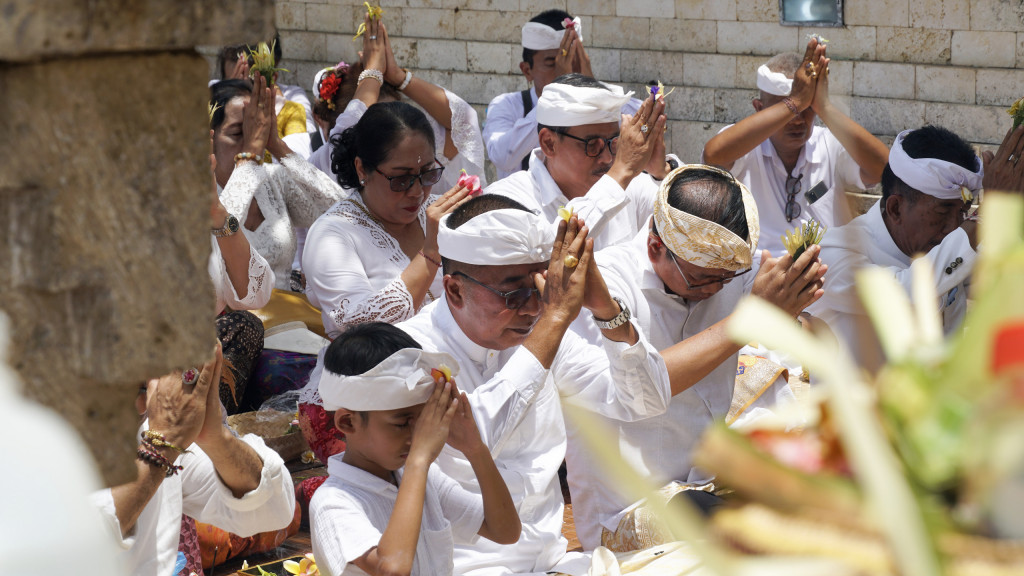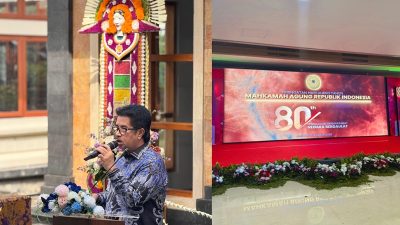INDONESIANTALK.COM – In the fast-paced, materialistic modern world, we often overlook the essence of a meaningful life: harmony. Harmony isn’t just about inner peace but also about maintaining balance in our relationships—with God, with others, and with nature. One profound philosophy that embodies this balance is Tri Hita Karana, a cultural treasure from Bali. Although rooted in Hindu Balinese traditions, this philosophy transcends local beliefs and offers universal values relevant to people of all faiths and cultures.
What is Tri Hita Karana?
Tri Hita Karana translates to “three causes of happiness.” It emphasizes the importance of maintaining harmonious relationships in three interconnected dimensions:
- Parahyangan: Relationship with God
Spiritual connection with the Divine is the foundation of inner peace. In Parahyangan, this connection is nurtured through daily prayers, such as Puja Tri Sandya in Hinduism. Similar practices are found in other religions, like the five daily prayers in Islam and the Angelus prayer in Catholicism. Despite their differences, these practices share a common goal: cultivating gratitude, introspection, and a profound spiritual bond with the Creator. - Pawongan: Relationship with Fellow Humans
Social harmony is crucial for a peaceful and fulfilling life. Pawongan emphasizes the values of tolerance, cooperation, and compassion. In Hinduism, the concept of Tat Tvam Asi, meaning “I am you,” encourages mutual respect and understanding. In Islam, tolerance is embodied in the principle of Tasamuh, while Catholicism upholds the Law of Love as the cornerstone of interpersonal relationships. These teachings all underscore the need for empathy and unity in diversity. - Palemahan: Relationship with Nature
As an inseparable part of nature, humans bear the responsibility to protect and preserve it. Palemahan promotes a harmonious coexistence with the environment, exemplified by Bali’s traditional Subak system—a holistic integration of social, spiritual, and ecological elements. Similar practices, like the Sasi tradition in Maluku and Papua or Mantari Bondar in South Tapanuli, highlight the importance of sustainable resource management to ensure the survival of future generations.
Tri Hita Karana in Modern Life
In today’s era of rapid development and environmental challenges, the principles of Tri Hita Karana are more relevant than ever. They provide a framework for addressing critical issues:
- In Environmental Management:
The Palemahan concept encourages sustainable use of natural resources. In tourism, for example, integrating these values supports eco-friendly and community-driven development. Many areas in Bali have successfully implemented this approach, prioritizing sustainability over short-term economic gains. - In Social Relationships:
Pawongan inspires harmonious living in diverse communities. In a multicultural country like Indonesia, this principle fosters mutual respect and cooperation, reducing the potential for conflict. - In Spiritual Life:
Parahyangan reminds individuals to seek inner peace amid life’s pressures. In a world dominated by materialism, spiritual reflection and gratitude serve as a vital counterbalance.
Lessons from Tri Hita Karana
This philosophy extends far beyond its Balinese roots and offers timeless lessons applicable to global challenges. By embracing its principles, we can create a balanced and harmonious society:
- Sustainable Development:
In the face of climate change and environmental degradation, Palemahan provides guidance for creating policies that balance economic progress with ecological preservation. - Stronger Communities:
In an increasingly individualistic world, Pawongan calls for stronger social bonds through cooperation and empathy. This fosters healthier and more resilient communities. - Enhanced Quality of Life:
Parahyangan encourages individuals to reconnect with their spiritual side. By nurturing gratitude and mindfulness, we can find deeper meaning in life beyond material achievements.
A Vision for a Harmonious Future
Tri Hita Karana is not merely a local philosophy; it is a global legacy offering solutions to today’s pressing challenges. By integrating its values into everyday life, we can create a world that is not only economically prosperous but also socially inclusive, spiritually fulfilling, and environmentally sustainable.
Imagine a future where humans coexist with nature without exploiting it, where diversity strengthens unity instead of dividing us. Tri Hita Karana reminds us that such a future is not just a dream but a possibility we can work toward.
The true essence of happiness lies in balance. Let Tri Hita Karana inspire us to build a meaningful life—for ourselves, for others, and for the planet.
Author: Ni Putu Indah Budi Lestari Putra (Master of Accounting Student 2024 UNDIKSHA)














